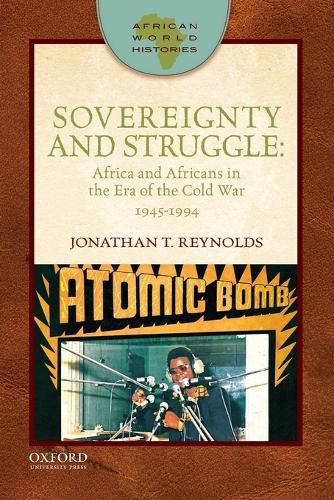Readings Newsletter
Become a Readings Member to make your shopping experience even easier.
Sign in or sign up for free!
You’re not far away from qualifying for FREE standard shipping within Australia
You’ve qualified for FREE standard shipping within Australia
The cart is loading…






Sovereignty and Struggle: Africa and Africans in the Era of the Cold War, 1945-1994 provides students with a deeper insight into African history during the period of decolonization and the Cold War. Examining Africa and Africans in the context of the global themes of liberation, economic development, and popular culture, author Jonathan T. Reynolds illustrates how Africans sought to define their own lives on a global stage.The first three chapters of Sovereignty and Struggle offer a thematic approach, covering the politics of early liberation struggles, economics, and global Cold War complexities. They provide students with insight into the motivations and aspirations of Africans from around the continent during the Cold War period. The last two chapters focus on pop culture–music, nation building, and identity–and specifically on popular representations of mobility, modernity, and sovereignty in Ghana during the 1950s and 1960s.
$9.00 standard shipping within Australia
FREE standard shipping within Australia for orders over $100.00
Express & International shipping calculated at checkout
Sovereignty and Struggle: Africa and Africans in the Era of the Cold War, 1945-1994 provides students with a deeper insight into African history during the period of decolonization and the Cold War. Examining Africa and Africans in the context of the global themes of liberation, economic development, and popular culture, author Jonathan T. Reynolds illustrates how Africans sought to define their own lives on a global stage.The first three chapters of Sovereignty and Struggle offer a thematic approach, covering the politics of early liberation struggles, economics, and global Cold War complexities. They provide students with insight into the motivations and aspirations of Africans from around the continent during the Cold War period. The last two chapters focus on pop culture–music, nation building, and identity–and specifically on popular representations of mobility, modernity, and sovereignty in Ghana during the 1950s and 1960s.